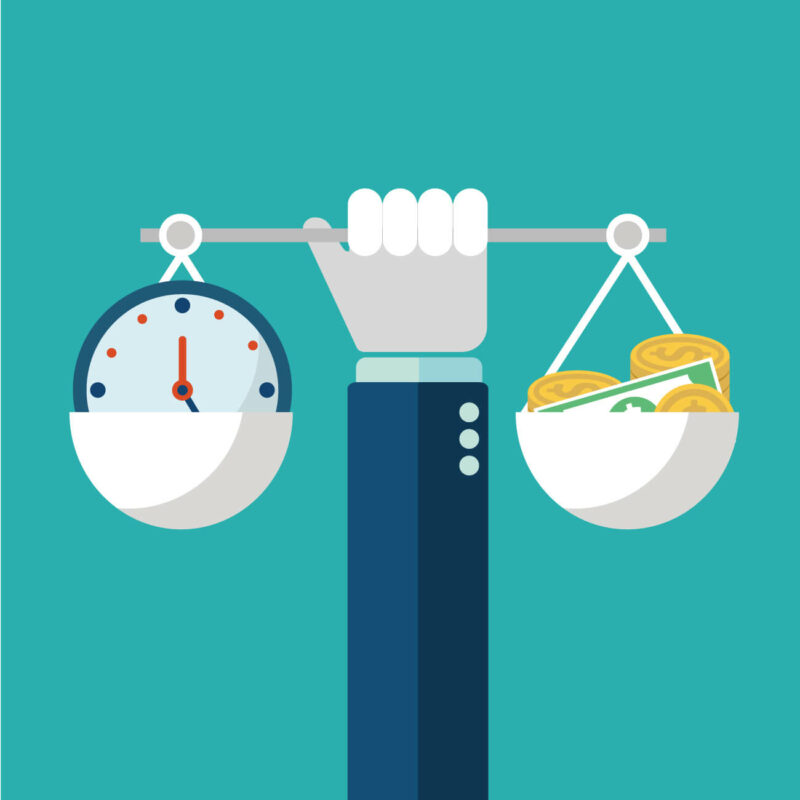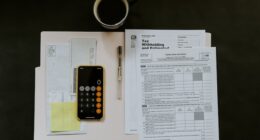Default refers to failure to fulfill an obligation, often financial, as agreed upon, while delinquent refers to being behind schedule or overdue in payments or tasks.
In finance and loans, the terms “default” and “delinquent” are often used to describe different degrees of missing payment obligations. Understanding the differences between these two terms is crucial for borrowers to manage their financial responsibilities. Let’s delve into the definitions and implications of default and delinquency.
Key Takeaways:
- Delinquency occurs when a borrower makes late payments or misses installment payments.
- Default happens when a borrower fails to meet loan obligations or doesn’t repay the loan as agreed.
- Delinquency is less severe than default and can be remedied by paying the overdue amount.
- Default can lead to the full loan balance becoming due and have long-term negative effects on credit and future borrowing opportunities.
The Implications of Delinquency

Payment delinquency refers to missing a single payment for a certain type of financing, such as a student loan. Delinquency can have various consequences depending on the type and duration of the loan. It’s crucial to address delinquency promptly to avoid reaching default status and experiencing further financial difficulties.
Consequences of Delinquency
When a payment becomes delinquent, certain repercussions may follow. These consequences can include:
- Accumulation of late fees and penalties
- Increased interest rates
- Damage to credit scores
Delinquency can also result in additional restrictions, such as the suspension of certain benefits or privileges. It’s essential to be aware of the potential ramifications and take necessary actions to prevent the situation from worsening.
Credit Score Impact of Delinquency
One of the significant impacts of delinquency is a negative effect on credit scores. Late or missed payments can significantly lower credit scores, making it more challenging to secure future credit or obtain favorable terms on loans or credit cards.
Delinquencies can remain on credit reports for several years, further impacting creditworthiness and financial opportunities. It is, therefore, crucial to address delinquencies promptly, make timely payments, and work towards repairing and rebuilding credit.
| Consequences of Delinquency | Credit Score Impact |
|---|---|
| Accumulation of late fees and penalties | Significantly lowers credit scores |
| Increased interest rates on existing loans | Limited access to future credit |
| Damage to credit history | Reduces creditworthiness |
Addressing and resolving delinquencies promptly is crucial for maintaining financial health and preserving creditworthiness. By taking proactive measures and staying current on payments, individuals can mitigate the negative consequences associated with delinquency and work towards a stronger financial future.
The Consequences of Default

Loan default occurs when a borrower fails to meet their loan repayment obligations. Defaulting on a loan can have severe consequences, including a significant negative impact on credit scores and difficulties in borrowing money in the future. Default can lead to foreclosure in the case of a mortgage loan or repossession in the case of a car loan.
Defaulting on a loan is a serious financial setback that can have long-lasting effects. One of the immediate consequences of default is the negative impact on credit scores. When a borrower defaults on a loan, it is reported to the credit bureaus and can result in a significant decrease in the borrower’s credit score.
The credit score impact of default can make it challenging to secure new loans or credit lines in the future. Lenders view borrowers who have defaulted on loans as high-risk and may be reluctant to extend credit due to the likelihood of future default.
In addition to the credit score impact, default can also lead to other borrowing difficulties. Borrowers who have defaulted on a mortgage loan may face foreclosure, which is the legal process by which the lender takes possession of the property. This can result in the loss of the borrower’s home and severely impact their financial stability.
Similarly, borrowers who have defaulted on a car loan may face repossession, where the lender takes possession of the vehicle. This not only results in the loss of transportation but can also lead to additional financial burdens if the borrower still owes money on the loan after the repossession.
It’s crucial for borrowers facing default to address the situation promptly to minimize the long-term effects on credit and financial opportunities. Contacting the lender to discuss potential solutions, such as loan modification or repayment plans, can be beneficial in resolving default and avoiding the most severe consequences.
Overall, defaulting on a loan can have significant repercussions, including a negative impact on credit scores and difficulties in borrowing money in the future. It’s essential to prioritize loan repayment and take proactive steps to prevent default whenever possible.
Student Loans and Delinquency vs Default
When it comes to student loans, delinquency and default are important terms to understand. Student loan delinquency occurs when payments are missed or made late, while default occurs when the loan remains delinquent for a certain period of time. It’s crucial to be proactive in managing your student loan payments to avoid reaching default status.
In the case of student loan delinquency, the consequences can be significant. Late or missed payments can result in late fees, increased interest rates, and a negative impact on your credit score. Being delinquent on your student loans can also have long-term effects, such as difficulty obtaining future loans or credit.
Defaulting on your student loans brings even more severe consequences. When a student loan defaults, the government may intervene and take action. This can include ceasing assistance, wage garnishment, and loss of eligibility for additional financial aid.
To prevent default, it’s important to explore options like deferment and forbearance. These programs allow you to temporarily suspend or reduce your student loan payments based on your financial situation. Taking advantage of these options can help you avoid the negative consequences of default and give you time to get back on track with your payments.
Overall, understanding the differences between delinquency and default is crucial when it comes to managing your student loans. Being proactive in addressing delinquency and seeking assistance when needed can help you avoid the long-term consequences of default, maintain a positive credit history, and secure a stronger financial future.
How Delinquency and Default Affect Credit Scores
Delinquency and default can have significant impacts on credit scores, affecting the ability to secure new loans, credit cards, or rental agreements. It’s important to understand how these financial situations can impact your credit report and overall creditworthiness.
When it comes to delinquency, missing payments or making late payments can result in a lowered credit score. While the impact may vary depending on the severity and frequency of delinquencies, consistently missing payments can have a long-term negative effect on your creditworthiness.
On the other hand, default has a much more significant impact on credit scores compared to delinquency. Default occurs when a borrower fails to meet their loan obligations or does not repay the loan as agreed. Defaulting on a loan can lead to a major drop in credit score and make it extremely challenging to obtain new credit in the future.
Both delinquencies and defaults can remain on your credit report for seven years, which can make it difficult to rebuild your credit and regain financial stability. Lenders and creditors look at your credit history when evaluating your creditworthiness, and the presence of delinquencies or defaults can signal a higher risk borrower.
In addition to affecting credit scores, delinquencies and defaults can also impact your credit report. Lenders and creditors use credit reports to assess your creditworthiness, and a negative credit report can affect your ability to secure new credit or obtain favorable terms.
To visually represent the impact of delinquency and default on credit scores, let’s take a look at the following table:
| Credit Situation | Credit Score Impact |
|---|---|
| Delinquency | Lowered credit score |
| Default | Significant drop in credit score |
As you can see, default has a much more substantial impact on credit scores compared to delinquency. It’s crucial to address delinquencies promptly to avoid reaching the default stage and minimize the credit score impact.
Next, we’ll explore how you can check for delinquencies on your credit report to stay informed about your financial health and take appropriate actions when needed.
How to Check for Delinquencies on Your Credit Report
Regularly reviewing your credit report is essential to identify any delinquencies or other negative information. By obtaining a credit report, you can stay informed about your financial standing and take necessary actions to improve your creditworthiness. Here’s a step-by-step guide on how to obtain and review your credit report for delinquencies:
- Contact the three major credit reporting companies: Equifax, TransUnion, and Experian.
- Request a free copy of your credit report from each of these companies.
- Verify your identity by providing the necessary personal information.
- Review your credit report to identify any delinquencies or late payments that may be affecting your credit score.
Note: It’s important to review your credit report from all three credit bureaus, as the information reported may vary between them. Delinquencies can be disputed if you believe they are incorrect. However, accurate delinquencies will remain on your credit report for a period of seven years.
Removing Delinquencies from Your Credit Report
If you come across incorrect information on your credit report, don’t worry. You have the right to dispute these delinquencies and errors to ensure the accuracy of your credit history. Taking action to remove inaccuracies from your credit report can have a significant impact on improving your credit score and overall financial well-being.
Here are some steps you can take to remove delinquencies and dispute errors on your credit report:
1. Review your credit report:
Obtain a copy of your credit report from the three major credit reporting companies – Equifax, TransUnion, and Experian. Carefully review the report to identify any delinquencies, errors, or inaccuracies.
2. Contact the lender:
If you find incorrect delinquencies on your credit report, reach out to the lender associated with the account. Provide them with the necessary documentation to support your dispute and request that they correct or remove the incorrect information.
3. Dispute the claim:
If the lender does not respond satisfactorily or fails to correct the error, you can formally dispute the claim with the credit reporting company. Submit a dispute letter stating the details of the error and provide any supporting evidence you may have. The credit reporting company will investigate the dispute and remove any inaccurate information if it is deemed invalid.
4. Negotiate for removal:
In some cases, you may want to negotiate with the lender directly to have delinquencies or negative marks removed from your credit report. This may involve paying off the delinquent account in full or negotiating a settlement agreement. Request a written confirmation from the lender stating that they will remove the delinquency from your credit report once the agreed-upon terms are met.
5. Monitor your credit report:
After taking steps to remove delinquencies, continue to monitor your credit report regularly to ensure that the corrections have been made. This will help you maintain an accurate credit history and identify any future errors or inaccuracies.
By actively working to remove delinquencies and dispute errors on your credit report, you can significantly improve your credit score and open up better financial opportunities. Remember to be persistent in your efforts and keep track of your progress to ensure the accuracy of your credit history.
Improving Credit After Delinquencies
While dealing with delinquencies and their effects on credit scores can be challenging, there are steps you can take to improve your creditworthiness. By following these strategies and demonstrating responsible financial behavior, you can rebuild your credit and regain control of your financial future.
1. Pay Bills on Time
One of the most effective ways to improve your credit score after delinquencies is to consistently pay your bills on time. Late payments can have a negative impact on your credit history, so make it a priority to submit your payments by their due dates. Set up automatic payments or reminders to help you stay on track and avoid any further delinquencies.
2. Keep Credit Utilization Low
Another important factor influencing your credit score is credit utilization – the amount of your available credit that you use. Keeping your credit utilization low (typically below 30%) shows lenders that you can manage your debts responsibly. Consider paying down existing balances and avoid maxing out your credit cards to improve your credit utilization ratio.
3. Use Credit Wisely
Using credit wisely means being selective about the types of credit you apply for and managing them responsibly. Instead of applying for multiple credit accounts at once, focus on a few credit cards or loans that align with your financial goals. Make regular, on-time payments and avoid taking on more debt than you can comfortably manage.
4. Add Positive Information to Your Credit Reports
Building positive credit history is crucial for improving your credit score. Look for opportunities to add positive information to your credit reports, such as being added as an authorized user on a family member’s credit card or applying for a secured credit card. These actions can show lenders that you are actively taking steps to rebuild your credit.
| Actions to Improve Credit Score After Delinquencies | Potential Impact |
|---|---|
| Consistently paying bills on time | Positive impact on credit score |
| Keeping credit utilization low | Favorable creditworthiness |
| Using credit responsibly | Improved borrowing prospects |
| Adding positive credit information | Rebuilding credit history |
By implementing these strategies and focusing on responsible financial behavior, you can work towards improving your credit score and rebuilding your creditworthiness. While it may take time, patience, and discipline, the efforts you put into improving your credit after delinquencies will have long-term benefits for your financial health.
How Delinquencies Affect Taxes
Delinquencies can have far-reaching consequences, extending beyond loans and credit cards to tax payments. When it comes to fulfilling tax obligations, timeliness is key to avoid additional fines and penalties. The IRS imposes late payment penalties on overdue taxes, with a penalty rate of 0.5% of the unpaid tax for each month or part of a month the tax remains unpaid, up to 25%.
To illustrate the impact of delinquencies on tax payments, consider the following example:
| Month | Unpaid Tax | Penalty (0.5%) | Total Amount Due |
|---|---|---|---|
| 1 | $1,000 | $5 | $1,005 |
| 2 | $1,000 | $10 | $1,010 |
| 3 | $1,000 | $15 | $1,015 |
| 4 | $1,000 | $20 | $1,020 |
| … | … | … | … |
| 12 | $1,000 | $60 | $1,060 |
| … | … | … | … |
| 24 | $1,000 | $120 | $1,120 |
| … | … | … | … |
| 48 | $1,000 | $240 | $1,240 |
| … | … | … | … |
| 96 | $1,000 | $480 | $1,480 |
As shown in the table above, an unpaid tax of $1,000 incurs a 0.5% penalty each month, leading to an increasing total amount due over time. After 96 months, the penalty reaches the maximum of 25%, resulting in a total amount due of $1,480.
To avoid these financial consequences, it’s essential to fulfill your tax obligations on time and in full. This ensures that your tax payments are accurate, up to date, and compliant with IRS requirements. By taking proactive steps to address delinquencies and make timely payments, you can avoid the burden of additional fines and penalties.
The Importance of Addressing Delinquency and Default
Addressing delinquency and avoiding default are crucial steps to protect your financial well-being. Failing to act promptly can have severe consequences on your credit and future borrowing opportunities.
Delinquency, which refers to late or missed payments, can result in high fees, increased interest rates, and a negative impact on credit scores. By addressing delinquency early on, you can minimize these financial consequences and avoid falling into default.
Default, on the other hand, occurs when you fail to meet your loan obligations or repay the loan as agreed. Defaulting on a loan can have serious long-term effects, including a significant negative impact on your credit scores and difficulties in obtaining new loans or credit cards. It can also lead to foreclosure or repossession of assets such as your home or car.
To avoid the negative financial consequences of delinquency and default, it’s important to take proactive steps. Reach out to your lenders to discuss your situation and explore potential solutions such as payment plans, loan modifications, or debt consolidation.
Additionally, seeking credit counseling can provide valuable guidance and strategies to manage your finances effectively. A credit counselor can help you develop a personalized repayment plan and provide support throughout the process.
Actions to Address Delinquency and Avoid Default:
- Contact your lenders to discuss your situation and explore solutions.
- Consider payment plans, loan modifications, or debt consolidation as viable options.
- Seek credit counseling to develop a personalized repayment plan.
- Make timely payments and prioritize your financial obligations.
- Monitor your credit reports regularly to ensure accuracy and address any errors promptly.
- Implement responsible financial habits, such as budgeting and reducing unnecessary expenses.
By addressing delinquency and avoiding default, you can protect your financial future and maintain a positive credit history. Remember, taking proactive steps to address your financial challenges is essential for your long-term financial well-being.
Steps to Take if You Have Delinquent or Defaulted Accounts
If you find yourself facing delinquent or defaulted accounts, it’s crucial to address the situation promptly to prevent further financial consequences. Here are some key steps you can take:
1. Bring the Accounts Current
Start by bringing your delinquent accounts current. Contact your lenders and negotiate a repayment plan to catch up on missed payments. This will help prevent further fees and interest from accumulating.
2. Discuss Hardship Options
If you’re unable to meet the repayment terms, reach out to your lenders to discuss hardship options. They may be willing to modify your loan terms, such as lowering the interest rate or extending the repayment period, to make it more manageable for you.
3. Consider Debt Consolidation
If you have multiple delinquent accounts, debt consolidation can be a helpful option. This involves combining all your debts into a single loan with a lower interest rate. It simplifies your payments and can potentially save you money in interest charges.
4. Seek Assistance from a Credit Counselor
Working with a credit counselor can provide valuable guidance in resolving your delinquent or defaulted accounts. They can help analyze your financial situation, create a budget, and negotiate with your lenders on your behalf.
Taking proactive steps to address delinquencies and defaults is crucial in minimizing the long-term negative impacts on your credit. By remedying delinquent accounts, resolving defaulted accounts, considering debt consolidation, and seeking credit counseling, you can regain control of your financial health and move towards a brighter future.
| Steps | Key Actions |
|---|---|
| 1. Bring the Accounts Current | Contact lenders and negotiate a repayment plan. |
| 2. Discuss Hardship Options | Reach out to lenders to explore modified loan terms. |
| 3. Consider Debt Consolidation | Evaluate the option of combining debts into a single loan. |
| 4. Seek Assistance from a Credit Counselor | Work with a credit counselor for expert guidance and negotiation. |
Conclusion
Dealing with delinquency and default can be challenging, but it’s not the end of the road. By taking proactive steps and making responsible financial decisions, you can recover from delinquencies and rebuild your credit. Remember, it’s crucial to address delinquencies promptly and take action before they escalate into default.
Monitor your credit scores regularly to track your progress and ensure accuracy in your credit reports. Reviewing your credit reports can help identify any delinquencies or errors that need to be addressed. Seeking assistance from credit counselors or financial advisors can provide valuable guidance on how to navigate through the challenges of delinquency and default.
Rebuilding your credit after delinquencies takes time, patience, and perseverance. Focus on implementing responsible financial practices, such as making timely payments, keeping credit utilization low, and adding positive information to your credit reports. With a proactive approach and determination, you can improve your financial health and achieve a brighter future.
FAQ
What is the difference between default and delinquent?
Delinquency occurs when a borrower makes late payments or misses installment payments, while default happens when a borrower fails to meet loan obligations or doesn’t repay the loan as agreed.
What is delinquency in finance?
Delinquency refers to missing a single payment for a certain type of financing, such as a student loan.
What is default in finance?
Default occurs when a borrower fails to meet loan repayment obligations.
What are the consequences of delinquency?
Consequences of delinquency can include fees, increased interest rates, and a negative impact on credit scores.
What are the consequences of default?
Consequences of default can include a significant negative impact on credit scores, difficulties in borrowing money in the future, and potential foreclosure or repossession.
What is the difference between payment delinquency and loan default?
Payment delinquency refers to missing a single payment, while loan default refers to failing to meet overall loan repayment obligations.
How does delinquency affect credit scores?
Delinquency can result in a lowered credit score.
How does default affect credit scores?
Default has a much more significant impact on credit scores than delinquency.
How long do delinquencies and defaults stay on credit reports?
Delinquencies and defaults can remain on credit reports for seven years.
How can I check for delinquencies on my credit report?
You can obtain a free copy of your credit report annually from the three largest credit reporting companies – Equifax, TransUnion, and Experian.
How can I remove delinquencies from my credit report?
Incorrect delinquencies can be disputed, but accurate delinquencies will remain on the report for seven years.
How can I improve my credit score after delinquencies?
Paying bills on time, keeping credit utilization low, and using credit responsibly can help improve your credit score.
What are the consequences of delinquency on taxes?
The IRS imposes late payment penalties on overdue taxes, which can result in additional fines and penalties.
What should I do if I have delinquent or defaulted accounts?
It’s important to take prompt action to address the situation, which can include bringing the accounts current, contacting lenders for hardship options, considering debt consolidation, or seeking assistance from a credit counselor.
How can I recover from delinquency and default?
By addressing delinquencies, taking prompt action, and implementing responsible financial behaviors, it is possible to recover, rebuild credit, and improve overall financial well-being.
Source Links
- https://www.investopedia.com/ask/answers/062315/what-are-differences-between-delinquency-and-default.asp
- https://www.experian.com/blogs/ask-experian/what-is-the-difference-between-delinquency-and-default/
- https://www.chase.com/personal/credit-cards/education/build-credit/default-vs-delinquency
Image Credits
Featured Image By – photoroyalty on Freepik
Image 1 By – Freepik
Image 2 By – wirestock on Freepik








